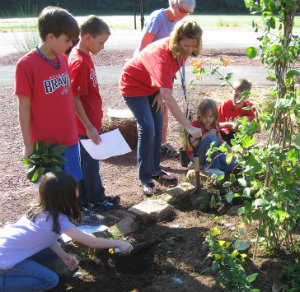The News Stories My Students Want to Read
A MiddleWeb Blog
 Often during our Friday current events discussions, the news feels like a litany of disappointment. Treaties violated, agreements undermined, peace shattered.
Often during our Friday current events discussions, the news feels like a litany of disappointment. Treaties violated, agreements undermined, peace shattered.
Recently, for instance, I found myself teaching the words inured (as in “inured to violence” after so many mass shootings) and demagogue (in reference to the 2016 presidential election), neither of which has an uplifting connotation.
Yet sometimes students bring in articles that make us all laugh and think, stories that give us hope that their generation will be the one to fix our current conundrums.
They say:
“I chose this article because it wasn’t depressing.”
“This article was hopeful, unlike a lot of what we’ve been talking about this week.”
“I picked this story because it made me smile.”
Here is a list of the kinds of stories that would make me and my eighth graders smile, if these headlines happened to appear in the papers in 2016.
Planting seeds: healthy kids, creative schools
When Lilly brought in an article this fall about the benefits of a school garden for students at an elementary school in Dallas, her classmates couldn’t stop oohing and aahing over the photos on the site. The symmetry of the garden, the focus and joy on the kids’ faces brought out a number of questions about why we don’t have a huge garden at our school.
Here’s to more articles about innovative approaches that drag students out of the classroom and into the sunshine – especially with a scalable model such as that provided by REAL School Gardens, the company described in the piece.
Creative innovation: puppies and robots, oh my
Some of our best discussions arise from scientific articles that blow everyone’s mind and spur a flurry of “what if” questions.
Recently Evan and Molly brought in a piece about the first litter of puppies born using in vitro fertilization, and conversation burst out in two different classes. How did the scientists do it? Why did it take so long? How is it different to do IVF in canines rather than humans? Does this development further break down the door to cloning or genetic sculpting?
Cornell University College of Veterinary Medicine
Robots generate similar fascination. Patrick and Alex recently brought in a story describing a computer program that did better than humans in reading alphabetic characters. The question of when movies will meet reality – of whether we will live under a robot government in several decades or centuries – mesmerizes all of us.
Small steps: funding where there was none
Following up on an article we had discussed about Los Angeles declaring a homelessness emergency and then not providing enough funds, Matt brought in a piece saying that L.A. was giving $12.4 million in emergency funds in advance of winter storms.
The millions in aid may tackle only a small corner of the problem, but my students are heartened by the idea that “[s]ometimes things don’t go, after all,/ from bad to worse,” as Sheenagh Pugh writes in her poem “Sometimes.”
Humane responses to inhuman acts
If we still have to endure the scourges of terrorism and mass shootings in 2016, then I’m hoping for humor and humanity in response.
After the terrorist attacks in Paris in November, Saya sent along a viral CNN video of a French father who comforted his young child by affirming that “the flowers and the candles are here to protect us.”

And what if newspapers could avoid focusing on the suspects in violent attacks – instead describing the victims’ families and the responses taken by the government and other citizens? Many students have suggested more judicious coverage so that media outlets don’t inadvertently spark copycat shootings.
Hope for the new year
Maybe this year will bring with it a plethora of new and inspiring vocabulary to teach during discussions – not inured or demagogue, but rather bipartisan or grassroots or international accords, the kinds of agreements we’ve seen in 2015 on nuclear proliferation in Iran and on global climate change.
Then again, if the front pages don’t cooperate, maybe I can take a page from my students: avoid ambulance-chasing and bring in more stories that uplift as well as inform. How about you?


































